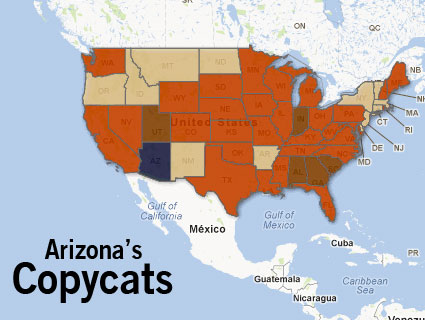With the passage of Tuesday’s Question 4 ballot initiative, Maryland became the latest state—and the first by popular vote—to pass a so-called state Dream Act, allowing undocumented college students to pay in-state tuition rates for public college and universities there. Fourteen states* now have such laws on the books:

It might not have been the most controversial initiative on Maryland ballots this year—that’d be Question 6, the same-sex-marriage measure, which also passed—but the Dream Act still generated a heated debate in the Old Line State. The bill originally was approved by the General Assembly and was signed by Democratic Gov. Martin O’Malley in 2011, but opponents, led by the group Help Save Maryland, collected well over the nearly 56,000 signatures required to force a referendum on the issue.
Coming just months after President Obama’s deferred-action directive, the result was another bit of good news for advocates of immigrants’ rights, who in the past couple of years have fought both the Obama administration over its deportation of more than 1 million undocumented immigrants and various statehouses over the bevy of self-deportation-related state immigration laws like Arizona’s SB 1070.
Now, with Obama’s reelection secured thanks in no small part to the overwhelming support of Latino voters, they will try to hold him to his campaign promise to push through comprehensive immigration reform. If Senate Majority Leader Harry Reid’s post-election comments were any indication, immigration could follow the fiscal cliff as 2013’s biggest legislative battle.
*Note: According to the National Immigration Law Center’s Tanya Broder, Minnesota, while not marked on the above map, offers a flat tuition rate to students, regardless of immigration status. Also, Rhode Island’s state measure was passed by its higher education board, not the Legislature.

















